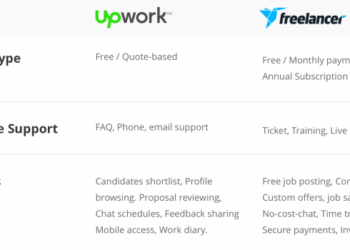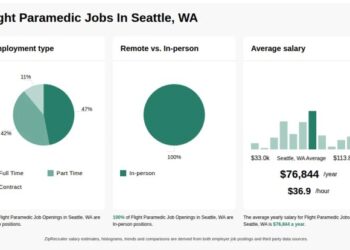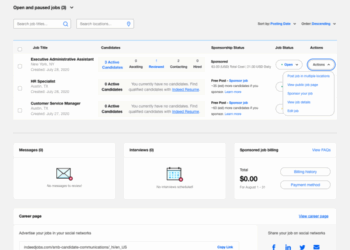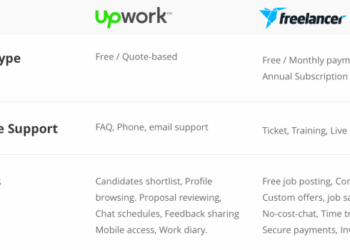Delving into how to transition into high paying it jobs with no experience, this introduction immerses readers in a unique and compelling narrative. From exploring entry-level IT positions to understanding the importance of networking, this guide offers valuable insights for those looking to break into the IT industry.
Research on Entry-Level IT Jobs
When looking to transition into high-paying IT jobs with no experience, it is essential to research various entry-level positions that offer great earning potential. By identifying these roles, exploring the necessary skills and certifications, and understanding the demand in the current job market, you can better prepare yourself for a successful career in IT.
High-Earning Entry-Level IT Positions
- Software Developer: Software developers are in high demand and can earn lucrative salaries. They need to have strong programming skills and knowledge of various programming languages.
- Cybersecurity Analyst: With the increasing threats to cybersecurity, the demand for cybersecurity analysts is on the rise. These professionals need to have a deep understanding of security protocols and tools.
- Data Scientist: Data scientists analyze complex data to help organizations make informed decisions. They require expertise in data analysis tools and programming languages like Python and R.
Skills and Certifications Required
- Programming Skills: Proficiency in languages like Java, Python, or C++ is essential for many IT roles.
- Certifications: Obtaining certifications like CompTIA A+, CCNA, or Certified Ethical Hacker can boost your credibility and marketability in the IT field.
- Problem-Solving Abilities: IT professionals need to be able to troubleshoot issues and find innovative solutions to complex problems.
Demand for IT Professionals
- The job market for IT professionals is highly competitive, with a growing demand for skilled individuals in various sectors such as healthcare, finance, and technology.
- Employers are looking for candidates who can adapt to new technologies quickly and contribute to the success of their organizations.
- Continuous learning and upskilling are essential to stay relevant in the ever-evolving field of IT.
Skill Development and Training
In the competitive field of IT, having the right skills and training is crucial to stand out and land high-paying jobs. Let's explore the various ways you can develop your skills and gain valuable experience in the IT industry.
Online Platforms for IT Training Courses
Online platforms such as Coursera, Udemy, and Pluralsight offer a wide range of IT training courses covering programming languages, cybersecurity, data analysis, and more. These courses are taught by industry experts and can help you acquire new skills or enhance existing ones to boost your employability in the IT job market.
- Coursera: Offers courses from universities and colleges worldwide, providing certificates upon completion.
- Udemy: Provides a vast selection of IT courses at affordable prices, allowing you to learn at your own pace.
- Pluralsight: Specializes in technology skill development with courses on software development, IT ops, and cybersecurity.
Gaining Hands-On Experience
Hands-on experience is invaluable in the IT industry as it demonstrates your practical skills and problem-solving abilities. Engaging in projects, internships, or volunteering opportunities can help you apply your knowledge in real-world scenarios, enhancing your understanding and readiness for IT roles.
Remember, employers value candidates who can showcase their ability to tackle challenges and deliver results through hands-on experience.
Obtaining Relevant Certifications
Certifications validate your expertise and proficiency in specific IT domains, making you a more credible candidate for high-paying IT jobs. Certifications such as CompTIA, Cisco, AWS, and Microsoft are highly recognized in the industry and can significantly enhance your professional credibility and earning potential.
- CompTIA: Offers certifications in IT fundamentals, cybersecurity, networking, and more.
- Cisco: Specializes in networking certifications, including CCNA and CCNP, essential for networking roles.
- AWS: Provides certifications for cloud computing, such as AWS Certified Solutions Architect and AWS Certified Developer.
- Microsoft: Offers certifications for various Microsoft technologies, like Azure and Microsoft 365, to demonstrate proficiency in their products.
Networking and Building Connections
Building a strong network and connections in the IT industry is crucial for transitioning into high-paying IT jobs with no experience. Networking can open up doors to job opportunities, mentorship, and valuable insights from professionals who have been in the field for a long time.
Strategies for Networking in IT
- Attend industry-specific events, conferences, or meetups to meet professionals and expand your network.
- Utilize social media platforms like LinkedIn to connect with professionals in the IT industry and join relevant groups.
- Reach out to alumni from your college or university who are working in IT roles and seek guidance or advice.
- Participate in online forums or communities where IT professionals share knowledge, job opportunities, and insights
.
Benefits of Networking in IT
- Opportunities for mentorship and guidance from experienced professionals in the field.
- Access to hidden job opportunities that are not advertised publicly.
- Stay updated on industry trends, technologies, and best practices through connections with IT experts.
- Build a reputation and personal brand within the IT community, which can lead to referrals and recommendations for job openings.
Online Communities for IT Professionals
- Join platforms like GitHub, Stack Overflow, or TechCrunch to engage with IT professionals, share knowledge, and stay current with industry developments.
- Participate in online hackathons, webinars, or virtual conferences to connect with like-minded individuals and expand your network.
- Contribute to open-source projects to showcase your skills and collaborate with other IT professionals in a meaningful way.
Tailoring Your Resume and Cover Letter
When transitioning into high paying IT jobs with no experience, it is crucial to tailor your resume and cover letter to showcase your potential and eagerness to learn. Highlighting transferable skills, emphasizing your interest in IT, and showcasing relevant projects or self-taught skills can make a significant impact on recruiters.
Here are some tips to help you effectively tailor your resume and cover letter for IT positions:
Highlighting Transferable Skills
- Identify transferable skills from your previous experiences, such as problem-solving, critical thinking, teamwork, and communication skills.
- Showcase how these skills can be applied to IT roles, highlighting specific examples and achievements.
- Use s from the job description to align your skills with the requirements of the position.
- Quantify your accomplishments whenever possible to demonstrate the impact of your skills.
Tailoring Your Cover Letter
- Express your genuine interest in the IT field and your willingness to learn and adapt to new challenges.
- Share a brief story or anecdote that demonstrates your passion for technology and problem-solving.
- Explain how your background and experiences have prepared you for a career in IT, even without direct experience.
- Customize each cover letter for the specific job and company you are applying to, showing that you have done your research.
Showcasing Relevant Projects or Self-Taught Skills
- Include a section in your resume dedicated to relevant projects you have worked on, whether they were academic, personal, or freelance.
- Highlight any self-taught skills or certifications you have obtained that are relevant to the IT industry.
- Showcase your problem-solving abilities and creativity through examples of projects where you took initiative and achieved results.
- Demonstrate your continuous learning and improvement by mentioning any online courses, workshops, or hackathons you have participated in.
Interview Preparation and Performance
Preparing for an IT interview is crucial to make a lasting impression on potential employers. Demonstrating your problem-solving skills and passion for the field can set you apart from other candidates.
Common IT Interview Questions and Preparation
- Explain your experience with [specific programming language or technology].
- Describe a challenging IT project you worked on and how you overcame obstacles.
- How do you stay updated with the latest trends in technology?
- Why do you want to work in IT and what motivates you?
Significance of Demonstrating Problem-Solving Skills
- Employers value problem-solving skills in IT professionals as they are essential for troubleshooting and finding solutions efficiently.
- Practice solving technical problems and explaining your thought process during the interview to showcase your abilities.
- Highlight specific examples where you successfully resolved complex issues to demonstrate your problem-solving capabilities.
Tips to Showcase Passion for IT and Eagerness to Grow
- Discuss your personal projects or side ventures related to IT to demonstrate your passion for the field.
- Express your willingness to learn and adapt to new technologies during the interview.
- Show enthusiasm for continuous growth and improvement by sharing your career goals in the IT industry.
Last Point
In conclusion, transitioning into high paying IT jobs with no experience requires a strategic approach that combines skill development, networking, and effective resume tailoring. By following the tips Artikeld in this guide, you can increase your chances of landing a lucrative IT position and kickstarting your career in the tech industry.
Question & Answer Hub
What are some entry-level IT positions with high earning potential?
Some entry-level IT positions with high earning potential include data analyst, cybersecurity analyst, and software developer.
How important is networking in transitioning into high paying IT jobs?
Networking is crucial as it allows you to connect with professionals in the industry, gain insights, and discover job opportunities that may not be advertised.
What certifications can boost credibility in the IT industry?
Certifications such as CompTIA Security+, Cisco Certified Network Associate (CCNA), and AWS Certified Solutions Architect can significantly boost credibility.
How can I highlight transferable skills in my resume?
You can highlight transferable skills by showcasing relevant experiences, projects, and achievements that demonstrate your ability to excel in an IT role.
What are some common IT interview questions to prepare for?
Common IT interview questions include inquiries about technical knowledge, problem-solving abilities, and your passion for the field.











